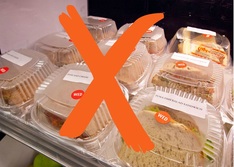
Fast forward a few years and your book is being readied for market. And it goes from wonderful creation to commodity, something that's bought and sold like cheese sandwiches at a deli or cheese slicers at your favorite discount store. We begin to talk about our work in units—and it's not about how much your characters touched the reader as it is about how many books were sold.
The problem with this, for me at least, is that, to me at least, books aren't a commodity. Books are so much more than cheese slicers. A good book can take you places you've never been and meet people you've never met before. A good story allows you to fall in love again as though for the first time, it is the connective tissue that holds our human hearts together. There are studies that suggest fiction readers develop more empathy than non readers. This isn't surprising, given the power of words.
And yet, we send our words to market; we hand over our stories, often cheaply, and worry over how many units will be sold. Our words are reduced to so many cheese sandwiches. In the process, we are reduced as well, to producers of words instead of crafters of story. How do you determine a story's worth? The simple answer is, you can't.


 RSS Feed
RSS Feed

